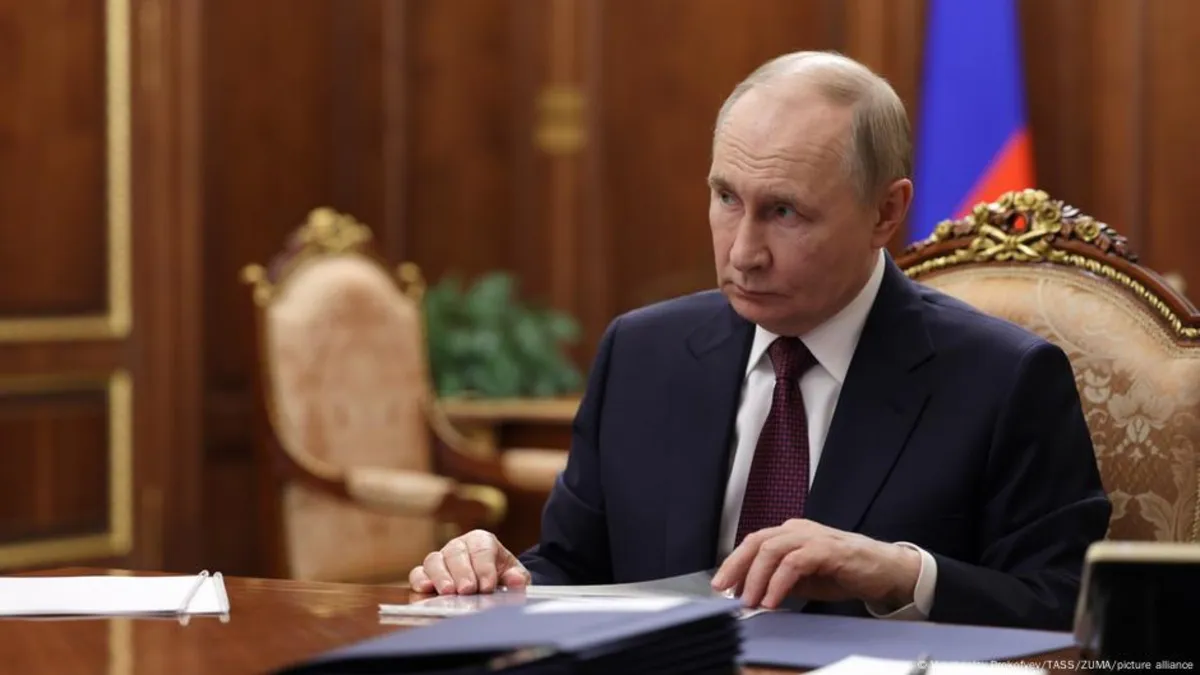
Conflicts in Ukraine: Russian President Vladimir Putin has firmly stated that the presence of any Western troops in Ukraine would be considered a threat and would be regarded as legitimate targets for destruction. This statement was made during an economic forum in Vladivostok, where Putin emphasized that the deployment of foreign forces, especially during ongoing military operations, poses a significant danger to Russia's security.
The Kremlin interprets any Western military presence in Ukraine as a direct challenge, particularly in light of NATO's ongoing expansion eastward, which Russia views as a threat to its national security. Kremlin spokesperson Dmitry Peskov echoed Putin's sentiments, asserting that the presence of NATO troops in Ukraine is unacceptable and would be met with strong opposition from Russia.
On the same day, it was reported that Ukraine successfully conducted a drone strike on a Russian oil refinery located in Ryazan. This attack marks a continuation of Ukraine's strategic efforts to disrupt Russian supply lines amidst the ongoing conflict, which has seen significant developments since Russia launched a full-scale invasion in February 2022.
In a broader context, Western allies have pledged military deployments as part of postwar security guarantees for Ukraine. French President Emmanuel Macron has indicated that Europe stands ready to provide security assurances to Ukraine once a peace agreement with Russia is reached. However, Germany has hesitated to commit military forces, citing the current limitations of its armed forces.
In Germany, Bavaria's Premier Markus Söder has publicly rejected the idea of deploying German troops to Ukraine, emphasizing that NATO forces stationed in Ukraine would likely exacerbate tensions with Russia. He has called for a reassessment of Germany's military readiness, suggesting that the country needs to reinstate conscription to bolster its armed forces, which are currently strained both financially and in personnel.
Ukrainian President Volodymyr Zelenskyy is actively urging neighboring countries, including Slovakia, to stop importing Russian oil, highlighting the need for collective action against Russia's ongoing military aggression. Zelenskyy asserts that Russian oil has no future and is incompatible with European values, particularly in light of the war in Ukraine.
While Zelenskyy and Slovak Prime Minister Robert Fico acknowledge differing views on how to end the conflict, they both emphasize the importance of finding a path that prioritizes Ukraine’s sovereignty and security.
Putin's remarks regarding Ukraine's potential EU membership have also sparked discussions. While he claimed that Russia has never officially opposed Ukraine joining the EU, many analysts interpret this as a strategic maneuver aimed at appeasing Western leaders. The nuances of these statements indicate the complex interplay of geopolitics in the region, particularly with relations involving the United States and NATO.
As the conflict continues, Russia has adapted its military strategies, employing smaller units to infiltrate Ukrainian defenses. This shift away from large-scale tank deployments towards stealthy nighttime operations has proven effective in areas where Ukrainian drone surveillance is weak.
In light of potential peace negotiations, the United States is reportedly considering establishing a demilitarized buffer zone in Ukraine, which could be monitored by non-NATO countries. However, U.S. President Donald Trump has maintained that American forces will not be deployed on the ground in Ukraine, although support in the form of air and surveillance capabilities may be provided to allied nations.
In addition to military support, President Zelenskyy has expressed gratitude towards the European Union for advancing security guarantees for Ukraine. He emphasized the need for Ukraine to be a full participant in the European defense structure to address existing capability gaps. Zelenskyy also highlighted the importance of EU support for Ukraine’s energy needs, recovery, and educational initiatives.
The ongoing conflict in Ukraine remains a focal point of international relations, with significant implications for regional security and stability. As various nations navigate their roles in this crisis, the situation continues to evolve, with the potential for both conflict and resolution hanging in the balance.